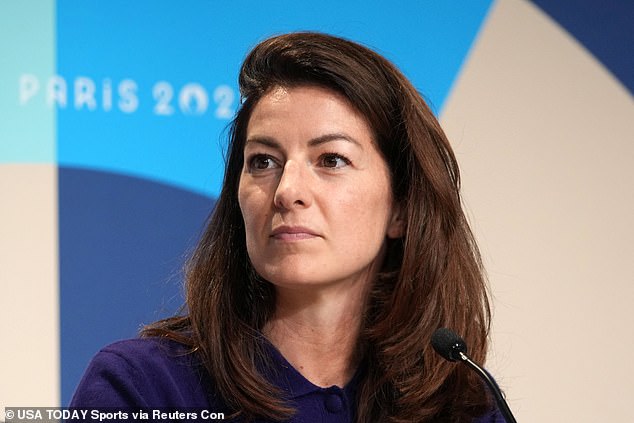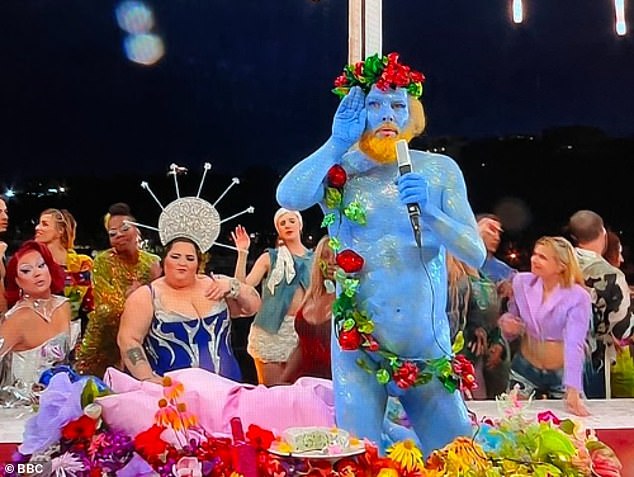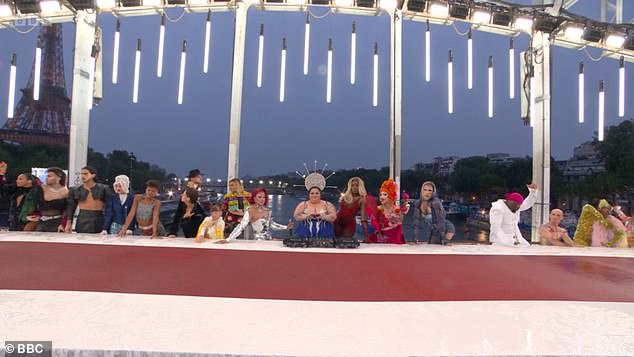- Friday night’s Olympic opening ceremony caused a lot of controversy
- Many Christians were upset by a scene they thought depicted The Last Supper.
- But Paris 2024 organiser Anne Descamps said: “Clearly there was never any intention to disrespect any religious group.”
Paris 2024 organiser Anne Descamps has apologised for any offence caused by religious depictions during the opening ceremony.
Friday’s masterpiece received some criticism for a banquet scene in which an actor playing the Greek god Dionysus took center stage at a table with drag queens, which has been interpreted as reminiscent of Leonardo da Vinci’s painting The Last Supper.
Some religious groups condemned the ceremony, including the Catholic Church in France, which said it included “scenes of mockery and ridicule of Christianity.”
At a news conference on Sunday, Descamps apologised for any offence caused and insisted the ceremony was intended to “celebrate community tolerance”.
“It is clear that there was never any intention to disrespect any religious group,” he said. “On the contrary, I believe that Thomas Jolly did intend to celebrate community tolerance. We believe that this ambition was achieved; if anyone has felt offended, we are of course very sorry.”
This scene featuring drag queens performing The Last Supper caused controversy during the opening ceremony of the 2024 Olympic Games in Paris on Friday night.

Paris 2024 Olympic Games Communications Director Anne Descamps at a press conference
The International Olympic Committee later said in a statement: “The IOC has taken note and welcomes the clarification given by the Paris 2024 Organising Committee regarding the Opening Ceremony.
‘At the daily press conference, the Organising Committee stated that there was never any intention to disrespect any religious group or belief.
“They reiterated that their intention with the opening ceremony was always to celebrate community and tolerance. The Organizing Committee also said that if anyone was offended by certain scenes, it was completely unintentional and they were sorry.”
Sunday’s apology came after thousands of social media users threatened to boycott the Paris Games over the opening ceremony.
Angry viewers took to X (formerly Twitter) where the hashtags “#boycottOlympics” and “#boycottParis2024” trended over the course of the next day.
The appearance of a “naked blue man” in a scene resembling the Last Supper angered many viewers, especially Christians.
One wrote: ‘What a disgraceful opening to the 2024 Olympics #BoycottOlympics’.
Another said they “didn’t even care about the Olympics” but were now “boycotting them 100 percent.”

A blue-painted singer represented the Greek god Dionysus during Friday’s ceremony.
But US-based Reverend Benjamin Cremer later shared a post dispelling the accusation that the controversial drag scene mocked classical painting by Leonardo da Vinci and therefore Christianity.
Cremer’s message read: “It was a representation of the event called the Feast of Dionysus. Greek god of festivity, celebrations, rituals and theatre.”
‘The Olympic Games are part of Greek culture and tradition. French culture is deeply rooted in celebration, festivities and performing arts.’
According to Cremer’s theory, the scene depicted at the opening ceremony was based on a painting called ‘The Banquet of the Gods’ by Johann Rottenhammer and Jan Bruegel, around 1602.

